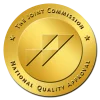Post Traumatic Stress Disorder Awareness Day – June 27th

In 2010, the US Senate officially designated June 27th as Post-Traumatic Stress Disorder (PTSD) Awareness Day and June as PTSD month. In observation of PTSD Awareness Day, Peak Behavioral Health encourages people to understand the impact trauma has on both veterans and non-veterans and to seek information and education about this disease. The goal of this initiative is to create greater awareness about signs and symptoms, highlight treatment options and identify community providers and resources.
Post Traumatic Stress Disorders is a mental health condition that can occur after someone has been exposed to a single traumatic event or multiple traumatic events. Many who suffer from PTSD report incidents of sexual or physical assault, catastrophic events, war-related combat stress or the death of a loved one as primary triggers.
The National Co-morbidity Study (NCS) established the prevalence of trauma in the United States. The study outlined a list of 12 types of traumatic experiences and concluded 60.7 percent of men and 51.2 percent of women reported experiencing at least one traumatic event in their lifetime.
Trauma exposure can, in many cases, result in chronic stress and anxiety, developmental delays in children, mental illness and substance abuse. PTSD can also have physical effects, including vivid flashbacks, difficulty sleeping, dizziness and chest pain.
According to Sandra Emanuel, LCSW and CEO of Peak Behavioral Health, “if stress reactions to trauma do not improve over time and it disrupts everyday life, then it’s important to recognize if you or someone you love may be experiencing PTSD.” Emmanuel added: “Common symptoms may include intrusive thoughts or troubling dreams about the traumatic event, acute emotional responses or flashbacks triggered by a memory of the trauma, an avoidance of thinking or talking about the trauma, or changes in regular sleep and appetite patterns.”
Today, there are effective trauma-informed interventions available for treating PTSD in children, adults, and veterans. Most mental health professionals include trauma screening as part of their initial patient assessment. Cognitive Behavioral Therapy (CBT) and Trauma-Focused CBT are effective treatment options along with group and medication therapy.
For those experiencing PTSD or supporting a loved one dealing with this disease, it is important to know when and where to get help and that recovery takes time. For many people, successful recovery means gradually feeling less bothered by the symptoms and discovering ways to cope with the bad memories.
If you know someone who is suffering from PTSD, call Peak Behavioral Health, we can help. We provide free assessments and admit patients, 24 hours per day, seven days per week. Our team can help stabilize patients at immediate risk to themselves or others and discuss long-term treatment options including therapeutic interventions, active coping skills, medication management and other ways to control signs and symptoms of PTSD.
About Peak Behavioral
Peak Behavioral Health specializes in the treatment for children, adolescents, adults and seniors with mental health and chemical dependency needs. Peak Behavioral Health hospital is open seven days a week, 24 hours a day. Call 575-589-3000 for more information or free psychiatric assessment.







